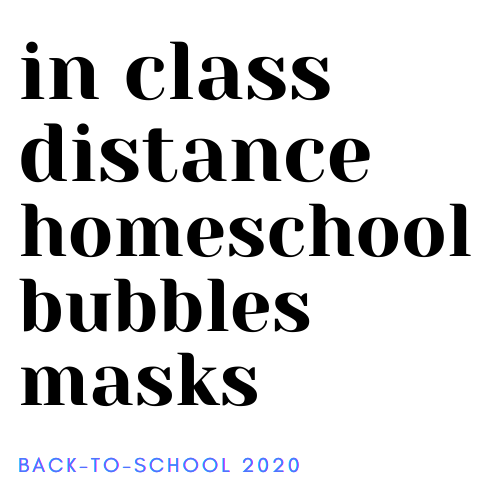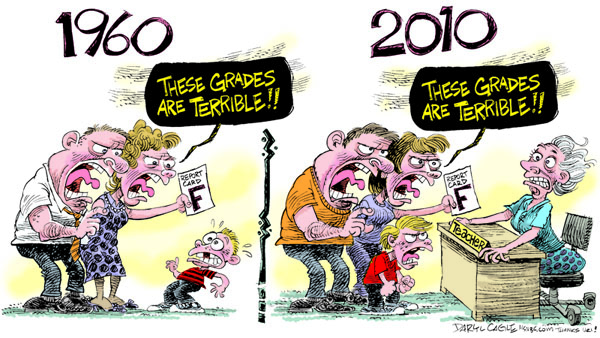On Thursday morning, someone from CBC News contacted me for a live interview later that afternoon. It was to talk about back-to-school in Quebec and concerns from a teaching perspective. It ended up being cancelled, I think Rob Ford bumped me on Thursday and something else did on Friday. These things happen.
Before they cancelled, I spent the day thinking about what I would say because this year’s back-to-school is entangled with confusion, worry, anger, fear, hope, and love. I wanted to speak with clarity.
I also asked some friends who are returning to the classroom in a few days what they would say, knowing that it would remain anonymous.
I am not the only one with such mixed feelings and I feel I need to do something with what everyone told me.
Here are some of the worries my teacher friends told me, in frantic text messages and phone calls, in between preparing for teaching in a pandemic. These are high school and elementary school teachers in the Greater Montreal area, from both the French and the English systems:
- Class sizes are too large! (edit: each teacher I spoke with mentioned this)
- We have 500+ students – today (Thursday) we saw parents and children outside of the French school for their first morning, hugging, no masks, no distancing. The same thing will happen here! How will this affect my class bubble?
- I don’t feel I know all of the different rules we now have. Will I be blamed if children get sick?
- We are missing teachers! One teacher decided to retire on Tuesday because she is over 60 and worried. It’s a day before school starts and the board still hasn’t let us replace her (edit: there is a process…). Who is going to set up that classroom for the children?
- Not enough cleaning supplies!
- Our day is longer by 30 minutes because of concerns with busing! Not sure if our principal should be able to do that – but that is what happened!
- Inconsistencies between school directives. We have been told back to business as usual within classrooms, where other schools are physically distancing.
- My friend who teaches in another school has 15 children in her classroom. I have 28. How is this fair? She can keep her students away from each other, I can’t.
- Some schools have given each room PPE, others nothing yet.
- Plexi being ordered for some, others nothing. They’ve created a have/have nots between the schools.
- Imagine other government employees making/providing safe work space and PPE for themselves.
- No definitive plan of action for what takes place if a COVID case is confirmed in any given school: is that school closed down for two weeks?
- What about COVID pay? 6 sick days will be used up pretty damn quickly.
- Before we even started we have some teachers in my school out and isolating. What will happen now that the children are here?
- I worry that others think I am overreacting. But I am afraid to get sick.
- I won’t see my parents this year, they are in their 80s.
- We spent most of our day washing hands. I hope this goes faster as we get used to it. I did not become a teacher to spend the day walking my students to wash their hands.
- We are missing teachers. Two classes in my school had a substitute teacher today, on their first day back since March!! I felt so bad for those children.
- I work in 3 schools. This doesn’t make sense!
- Zero mention/focus on mental health & well-being.
- No media blitz for how school might feel different upon the return.
- It is hard to keep the children away from each other when they see their friends! I am worried.
- Why can’t we delay the start a couple of days so teachers would have time to help get the school in order AND get ready for our actual jobs? Why don’t we have school-based committees for that?
- Why is the minister of education allowed to have different health and safety rules for the teachers versus every other business in Quebec?
- Why is money being spent on convincing people to go back to school, rather than spending money to make school safer?
- I am busy preparing my room and the hallways for Covid protocol. I haven’t had a chance to prepare to teach and to welcome my children, who haven’t been in school since March!
- I miss the kids. So much. I just don’t know how I will teach them properly because I am so worried. There are 33 children on my class list, last year I had 24. This doesn’t make sense.
- I feel we are putting a lot of energy into preparing for back-to-school and we will just end up closing after a month because our class sizes are too big and we have no social distancing or masks. I am already so tired. How will I have the energy to move online?
I always feel hope and love for teaching because we do what needs to be done for the children in our care. Sometimes, that is tinged with frustration and anger because it is expected of us even when our conditions are subpar – when the class sizes grow larger and the resources dwindle each year.
But this year, I am so angry that teachers are put in the position to try to make confusing and potentially dangerous policy bearable because we always put children first.
I am not returning to the classroom this year. I had returned last year after about six years away. But this year, I left for a position where I can work from home and keep my 9 year old son with me just in case. Because I am also worried about all of those things the teachers told me above. I lived all of those worries last year. So did my son. And because online learning is only being made available to a slim list of people with specific medical conditions, I will likely start homeschooling in September (Yes, in two days. And yes, I am still considering options…). It is the only solution right now that can guarantee consistency because there are so many inconsistencies with back-to-school this year. And it is sad that we will likely need to leave the system for that.
I also feel sad when I see teachers posing in their masks and face shields inside their classrooms that they are preparing for 25+ children to spend their days not wearing masks. Not social distancing. We can’t have 25 people in a SAQ at the same time …. even with masks and with social distancing!
The masks can hide the trembling smiles at least. I feel like schools are the band that plays while the Titanic sinks and this will have an impact on mental wellness. Teachers hold emotion for themselves, their colleagues, and their students. This year, the task is downright dystopic. Our government continues to insist that the best place for children is at school. But the current directives lack not only empathy but a reflection of current knowledge about this virus. The directives are inconsistent and school staff don’t have the time to make sense of them, not to mention what they are going to teach and how they are going to connect with their students who have been away from school for so long.


